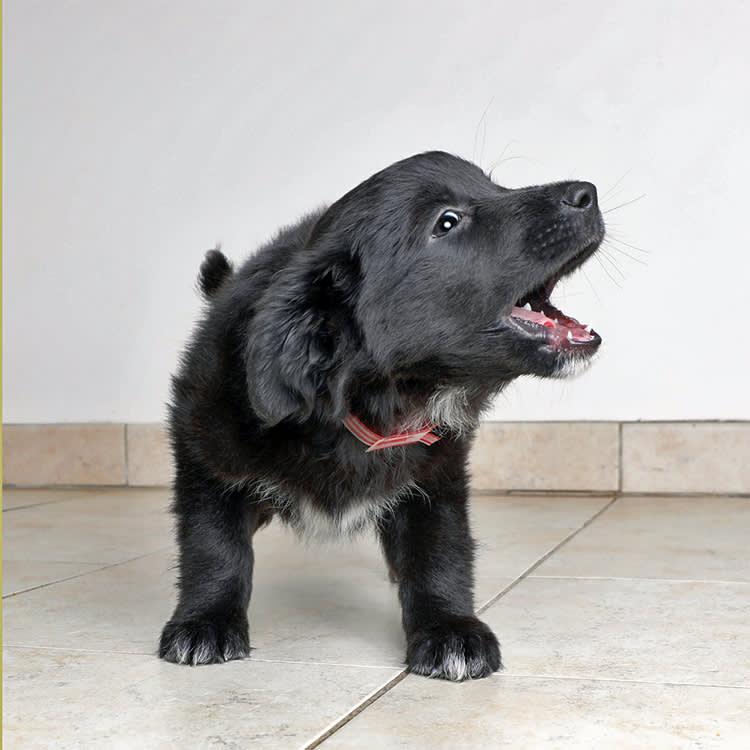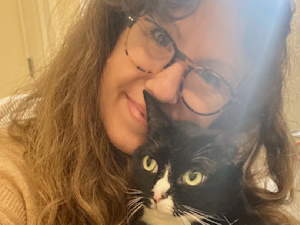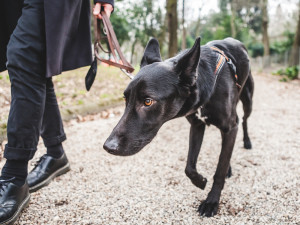Why Is My Puppy Whining?
It’s the saddest sound in the world.
In this Article:
Common Reasons Puppies Whine How to Stop a Whining Puppy How to Help a Puppy Who Whines in the Crate Tips For Whining Puppies
Is there anything sadder than the sound of a puppy whining? Even people who don’t consider themselves dog people would be hard-pressed to ignore the pitiful-sounding cries of a sad puppy. But does whining really mean that a puppy is sad, or is it possible that your puppy is whining for no reason?
Whether your puppy is keeping you up whining at night, whining in their crate no matter how cozy you make it, or you’re simply hoping to decipher their puppy-whining sounds, read on for answers.
Why do puppies whine?
Why is my puppy whining? It’s a common question coming from new pet parents — after all, a puppy whining is as common as a baby crying. (And any parent knows babies can cry.)
How much do you spend on your pet per year?
Puppies whine as a form of communication, expressing various needs or emotions. Common reasons for whining include seeking attention, expressing anxiety or fear, signaling discomfort or pain, or even expressing excitement. Understanding the specific context of the whining is crucial in addressing it effectively. If whining persists and is potentially linked to discomfort or pain, a visit to the veterinarian is recommended.
“Puppies whine for many reasons, but most whining falls into one of three categories: physical discomfort, loneliness, and boredom,” says Lorrie Reynolds, owner of Maximum Fun Dog Sportsopens in new tab. Let’s take them one by one.
Your puppy is in pain.
“Pain” may be too strong of a word, depending on the situation, but whining may indicate some sort of physical distress, Reynolds says. These can include needing to pee or poop, being too hot or cold, or experiencing hunger pangs (puppies like to eat — a lot).
Your puppy is lonely.
“Until you brought them home, your puppy was surrounded by their mother and siblings, as well as their breeder and family,” Reynolds says. It’s only natural that there is a period of adjustment to their new home.
Your puppy is bored — or tired.
Once again, it turns out puppies aren’t that different from human children. “Puppies also whine when they are bored or over-tired,” Reynolds says. “Just like toddlers, young puppies don’t know when they really need that nap, and whining can indicate that your puppy needs to sleep.”
Is it normal for puppies to whine?
Babies cry, puppies whine, and both are absolutely normal behaviors. Whining is one of the best ways puppies have of communicating; like babies, they don’t have a wide vocabulary with which to express themselves. Barking, howling, and whining are about it — though those notorious puppy dog eyes sure can say a thousand words.
How to stop puppies from whining
Although whining is normal, that doesn’t mean it should ever be ignored. In order to figure out how to get a puppy to stop whining, you need to figure out why they’re upset — and the first order of business is finding out whether they are in physical distress. “Puppies need to know that you are reliable and they can count on you to take care of them,” Reynolds says. If they’re uncomfortable, it’s very important that you respond.” To that end, here’s a three-step plan to help a whimpering puppy.
Take your puppy outside to relieve themselves.
When you’ve gotta go, you’ve gotta go — and puppies aren’t going to be stoic about it. A quick walk (or placing them on a puppy pad indoors) will do the trick if this is the case.
Give your puppy some food if they haven’t just eaten.
Getting bigger overnight burns up a lot of calories, so a snack may help a growing pup with a growling tummy. (Doesn’t a treat usually help you stop crying, too?)
Show your puppy some love.
Since puppies are likely to get both lonely and tired, cuddling up for a nap together might be just what the doctor (er, veterinarian) ordered. That’s right — napping with your new pet is good for both of you (especially if you’re suffering from a case of the puppy blues).
Keep your puppy busy.
A bored puppy is often a whiny puppy. To save your pooch from boredom, Reynolds suggests giving them a toy. “Rubber toys that are hollow (I like the Kong brand) can be filled with kibble and a little bit of yogurt and frozen. It will take your puppy quite a while to get all of the treats out.”
How to help a puppy who whines in the crate
Crate-training is a fact of life for puppies — or at least, it should be, Reynolds says. “All puppies and dogs should be crate trained. You don’t want your dog’s first experience with a crate to be for an emergency at the veterinarian or in a boarding kennel,” she says. “Crate-training a puppy keeps them safe when you can’t watch them, to ensure they’re not chewing on or eating things they shouldn’t, and it makes house training significantly easier if puppies are confined when you can’t watch them.”
That said, puppies often whine when they’re in the crate. To curb this, try the following:
Wear your puppy out before they go in the crate.
“To make crate-training easier on your puppy, make sure you are playing with them after they’ve gone out to eliminate so they’re tired and ready to nap when you crate them,” Reynolds says.
Put blankets or clothing that smells like you in the crate.
Not only will this make the crate extra comfy, your scent will comfort your puppy when you can’t be there to snuggle them. Choose a soft sweater or blanket to sleep with for a few nights, then transfer it to the crate (without washing it, of course).
Make the crate an appealing place to hang out.
Reynolds suggests making certain favorite toys special “crate-only” toys, so the crate becomes an appealing place for your pup, as well as feeding your puppy in the crate. “The association of the crate with a safe, fun, and food-filled place will eliminate that puppy whining before you know it,” she says.
Get your puppy used to being alone slowly.
“If your puppy is whining at night, move their crate close to your bed, where you can softly reassure them that you are there,” Reynolds says. “Keep the crate close to you, gradually moving it further away over time until your puppy is comfortable being crated in a different room without whining.”
Spend plenty of quality time with your puppy when they’re not in the crate.
The more you play with, talk to, and cuddle with your puppy when they’re not in the crate, the easier it will be for them to adjust to alone time in the crate. “Make sure you are spending a lot of time with your puppy between sessions alone in a crate for naps,” Reynolds says.
Should you ignore a whining puppy?
If you’re thinking of letting your puppy “cry it out,” think again. Caroline Wilkinson, a certified canine behaviorist and founder of digital pet coaching service Barket Placeopens in new tab, says ignoring your puppy’s cries can undermine your bond.
“It’s really important that we’re present for our puppies, especially in the early days, so that they can learn to trust us and build a solid foundation for our ongoing relationship. Whining is a way of our puppies expressing a need, so it’s important to try and meet whatever that need is.”
Other tips for handling whining puppies
Reynolds offers a few more tips for keeping puppy whining to a minimum. If your puppy is crying and you can’t figure out why, go down this checklist:
If your puppy hasn’t been out to poop or pee in the past hour, take them out.
Make sure your pup is on a feeding schedule that has been recommended by your breeder or veterinarian, and that you have fed them the correct amount so they aren’t hungry.
If your pup seems to have other symptoms of being ill (lethargy, diarrhea, vomiting, etc., call your vet immediately).
FAQs (People also ask):
When do puppies grow out of whining?
When do puppies stop whining? It varies, but generally, experts say it will decrease after a few weeks in their new home.
What should I do if my puppy starts whining all of a sudden?
A puppy who suddenly starts whining is trying to tell you something, so pay attention. If they’re not hungry, don’t need to pee or poo, and you’re right there with them, it may be time for a trip to the vet.
When should I take my puppy to the vet if they won’t stop whining?
“For excessive whining that doesn’t get better when your puppy has been outside, fed, and played with, always check with your veterinarian to make sure there is not a physical reason for the complaints,” Reynolds says.
Wilkinson concurs: “If your puppy is whining a lot of the time then it’s definitely important to get them checked out via your vet to ensure no underlying pain or discomfort is present.”









